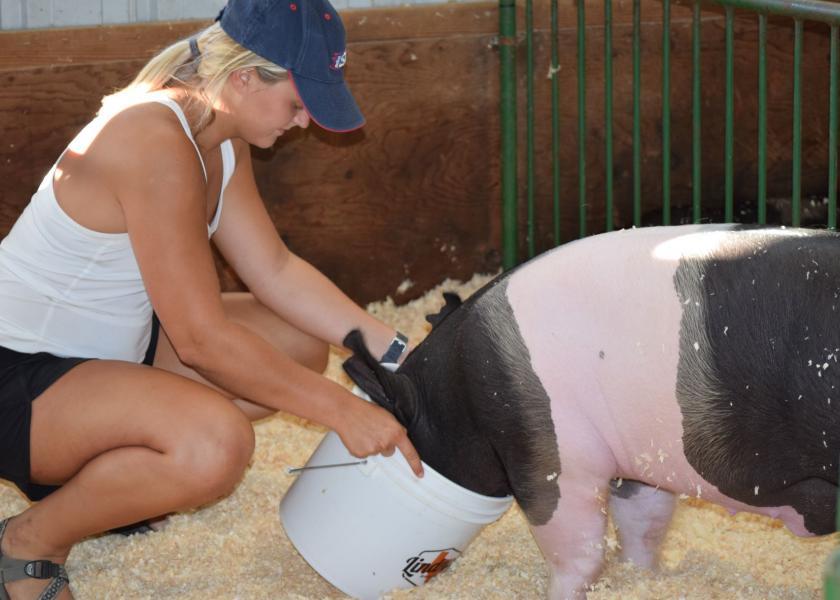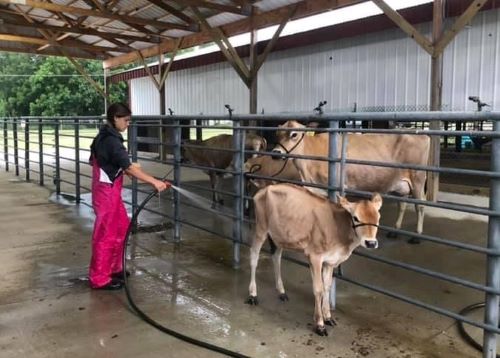Protect Your Show Livestock from Heat Stress at the County Fair

Nothing says county fair week like a hot forecast. Don’t forget to prepare for the heat your animals will face at the fair.
Although heat stress is more commonly considered to occur in extreme temperatures, anytime the temperature exceeds 70 degrees, livestock are adversely affected. Heat stress causes increased respiration rate, suppressed appetite, fatigue and dehydration, all signs of a lowered immune response.
When getting animals ready for the fair, we want them to eat well, stay hydrated and be at their best. It’s clear that these expectations we put on our show livestock to perform at the highest level and look exceptional while doing so can become a challenge when temperatures rise.
Here are a few tips to make sure your show animals stay healthy and perform to their best ability under hot weather conditions.
1. Be proactive.
Don’t just react to changes in temperatures. Pay attention to the weather forecast and make decisions to the best of your ability based on what’s coming.
“It is a lot harder to bring down livestock’s body temperature once they are hot than it is to manage it before it rises,” says Shelia Grobosky of BioZyme Inc.
2. Create a comfortable environment.
Manage your animal’s environment to make it as comfortable as possible. Keep animals out of direct sunlight and provide a shaded setting. Manage air flow by using fans and misters.
“If you can provide an environment that minimizes exposure to the direct sunlight and allows for air to move through, even in the most extreme heat, you can drastically reduce the outside temperature,” Grobosky says. “Keeping bedding wet down and misting water in the air will also help cool the air that fans push through your facility.”
3. Modify your feeding program.
Livestock, like humans, don’t want to eat when it’s extremely hot. Consider feeding earlier in the mornings so animals have a chance to eat before it gets hot. Keep water sources in a shaded environment if possible. Make sure lines that serve as water sources are not exposed to heat that can result in the water in the lines getting extremely hot. When you are at the fair, make sure to offer cold, fresh water often.

Photo by Karen Bohnert
4. Rinse animals multiple times throughout the day.
When you rinse animals with cool water, it helps drop their core temperature quicker than anything else you can do. When you rinse, focus on cooling their underline and head, Grobosky adds, as it will help them cool down faster. Don't just get them wet, but allow cool water to run over them a while to help drop their body temperature.
5. Strategically plan when you haul to shows.
During hot periods of the year, hauling at night is the most ideal to help reduce the time they will be exposed to the heat. Adjust ventilation on your trailer to allow for adequate air flow while traveling.
6. Keep your schedule consistent.
When you are at the show, try to maintain the same schedule of caring for your stock. Feed early, rinse regularly and keep the air moving by using fans.
Fairs are fun because they provide lots of opportunities to visit with friends. Don’t lose your focus on the most important job you have at the fair – to care for your animals. You may not be able to escape the heat during summer shows, but you can turn that challenge into an advantage by preparing properly, Grobosky says.
Read More:
No, Showing Livestock Isn't Always Supposed to Be Fun







